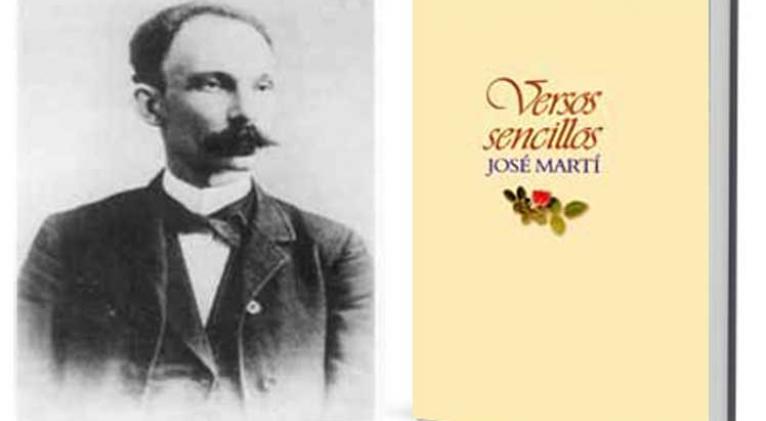The complex Simple Verses of José Martí
especiales

José Martí spent the hot month of August, 1890 far from New York City, in wooded mountains sparsely inhabited at the time, north of the homonymous state.
Thus, he followed the advice of doctors and friends, and while he savored that intimacy with nature, he took advantage of that moment away from his many daily chores to write verses. There, in the Catskill Mountains, he conceived the second and last book of poems that he would publish months later: Simple Verses.
There are forty-six octosyllable poems, with stanzas of four lines with consonant rhymes from first to third and second to fourth in some cases, and from first to fourth and second to third in others.
The rhymes, rhythm and musicality of the words used by the poet turned this notebook into a set of easy learning and memorization, factors that favor its popularity, for which several composers have taken many of these texts to the staff to be sung. Thus, a good part of the Simple Verses integrate popular culture in Cuba and elsewhere in Latin America.
There is no doubt that the writer intended and achieved precisely what he warns us from that qualifying title of singles: Martí uses that word of multiple meanings in the Spanish language in its meanings of spontaneous, natural, without artifice.
We know that he was always opposed to pompous, tinsel, false or weak literary creation of ideas. His original and brilliant written expression, in which the image plays a decisive role, was dominated at all times by his sense of service based on the good and human improvement.
And the thematic variety of Simple Verses is, in my opinion, one of the most successful examples of the conscious intertwining in Marti's written work of its aesthetics, its ethics, its philosophy, in short, its conception of the world and its lifetime.
Poem V is, perhaps, one of the best exponents of the author's will to give us the complex and deep scope of the simplicity of its verses:
'If you see a mountain of foam / It is my verse what you see: / My verse is a mountain, and it is / A fan of feathers. My verse is like a dagger / That sprouts flower from the fist: / My verse is a fountain / That gives a coral water. My verse is a light green / And a fiery carmine: / My verse is a wounded deer / That looks for shelter in the mountain. My verse pleases the brave: / My verse, brief and sincere , / It has the vigor of steel / With which the sword is fused. '
The dedication and loyalty to his principles are expressed, among others of the Simple Verses, in poem 23.
'I want to leave the world / Through the natural door: / In a car of green leaves / They will take me to die. Do not put me in the dark / To die as a traitor / I am good, and as good / I will die facing the sun'
And that sense of dedication is not clouded by hatred as those who, like Martí, shortly after this notebook was published, would call for a war for Cuban independence, necessary, but out of love.
In poem 39, one of the most repeated and where, by exception, he unites the eight verses in a single stanza, he tells us:
'I cultivate a white rose, / In July as in January, / For the sincere friend / Who gives me his true hand. / And for the cruel one who tears me out / The heart with which I live, / I cultivate thistle nor caterpillar: / I cultivate a White Rose.'














Add new comment